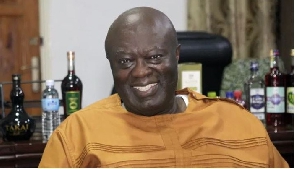The Minister in Charge of Government Communications, Felix Kwakye Ofosu, has reaffirmed the government’s commitment to press freedom, journalists protection, and responsible technological integration in the media landscape.
Speaking at the 2025 World Press Freedom Day celebration hosted by the Ghana Journalists Association (GJA) in Accra on Friday, May 2, on the theme, “Reporting in the Brave New World – The Impact of Artificial Intelligence on Press Freedom and the Media”, Kwakye Ofosu described the event as one that called for “cautious optimism and solemn reflection” as Ghana continues to recover from what he termed “historic lows” in its global press freedom rankings, most notably the sharp drop to 60th place in 2022.
He attributed that decline to “unwarranted attacks on journalists, closure of some media houses, and an atmosphere of intimidation,” which, he said, had undermined Ghana’s regional leadership in press freedom.
“These incidents were deeply regrettable,” he said, “and must serve as a reminder that the protection of journalists is not optional, but rather a sacred constitutional duty.”
Mr Kwakye Ofosu sounded a cautionary note on the evolving nature of threats to media freedom, asserting that “the threat is no longer just censorship, but also disinformation—deliberate, well-orchestrated, and increasingly intricate.”
He described how disinformation has become a powerful tool capable of “triggering discord, deepening polarisation, and manipulating public perception,” and warned that “what begins as a meme or a voice note in a WhatsApp group can spiral into violence.”
The minister paid particular attention to the rapid development of artificial intelligence (AI) and its transformative effects on journalism.
While acknowledging its capacity to accelerate workflows and refine data analysis, he warned of the ethical risks it poses if left unchecked.
“AI has no friends, no enemies, and no fear—unless it is trained to have them,” he said. “Without a journalist anchored in fairness, credibility, and ethical judgment, AI risks becoming a force that undermines the very freedoms it could support.”
He cautioned that AI’s efficiency could inadvertently lead to abuse: “The faster we move, the easier it becomes to overlook scrutiny, accountability, nuance, and context. When speed overtakes deliberation, the risk is not just error. It is abuse.”
Mr Kwakye Ofosu called on media professionals to “gird their loins” and confront this profound dilemma with vigilance and integrity.
Referencing the murder of investigative journalist Ahmed Hussein Suale—whose killers remain at large—the minister gave a firm assurance that the current administration is committed to concluding investigations and securing justice.
“These acts of impunity will not define our future,” he said. “We remain unwavering in our commitment to protecting journalists and upholding their constitutional freedoms.”
The minister emphasised that under President John Dramani Mahama’s leadership, the government will work to restore Ghana’s reputation as a beacon of media independence in Africa.
He called for a united front involving “security agencies, media owners, political actors, civil society, political parties, and citizens” to safeguard journalists’ rights.
Press freedom, he stressed, must not “swing with political cycles” but be “grounded in law, safeguarded by civic vigilance, and nurtured by a culture of transparency.”
He noted that media freedom also depends on ethical practice within the press itself. “To serve special interests, corporate influence, or any agenda other than the truth is also to serve power,” he said, urging the media to uphold independence beyond just resistance to the state.
Beyond advocacy, Mr Kwakye Ofosu said the government recognises that “true media independence must be underpinned by fair conditions of service and investment in professional development.”
He pledged policy reforms aimed at sustainability, safety, and innovation in the media sector.
He also acknowledged the significance of the Right to Information Act and other institutional reforms that have improved access to credible information and amplified public participation.
Felix Kwakye Ofosu congratulated awardees at the GJA ceremony, especially the winner of the Journalist of the Year award, and paid tribute to veteran journalists who helped lay the foundation for press freedom in Ghana.
“If today media practice in Ghana has become commonplace and carried out in an atmosphere of freedom, then it is down to the dedication and commitment of these individuals,” he said.
Reiterating the president’s full support for a free and responsible press, Mr Kwakye Ofosu urged: “Let us reaffirm our shared belief in a democratic Ghana where journalists can work without fear, where technology serves to elevate the truth, and where the media remains a pillar of our Republic.”
DISCLAIMER: The Views, Comments, Opinions, Contributions and Statements made by Readers and Contributors on this platform do not necessarily represent the views or policy of Multimedia Group Limited.

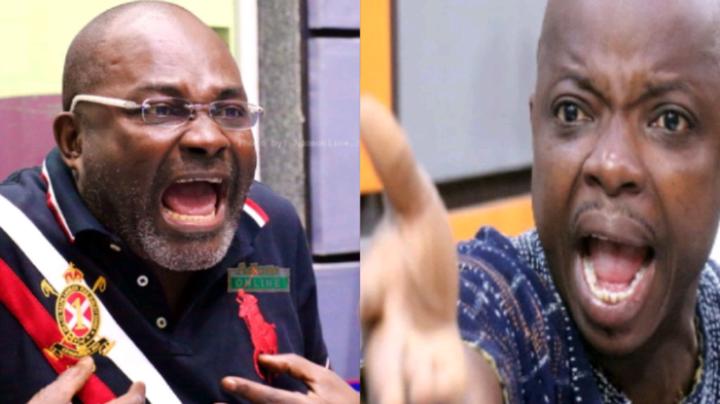
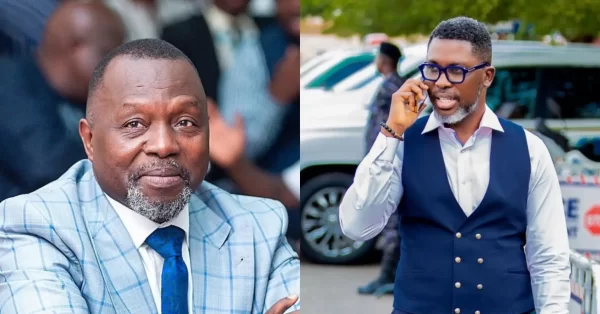


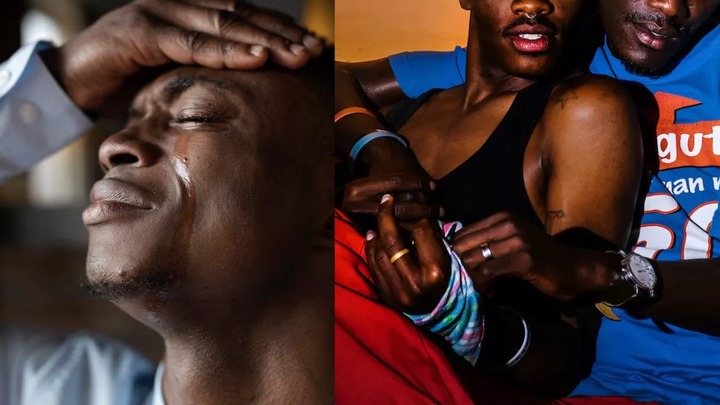

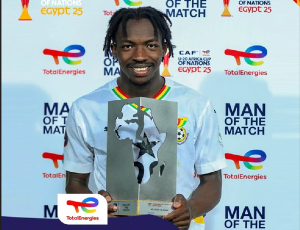



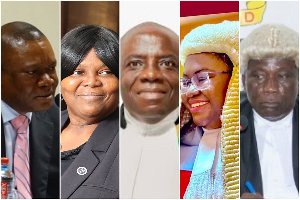



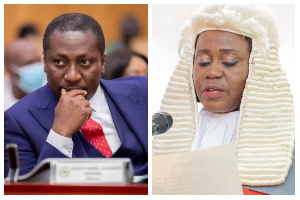

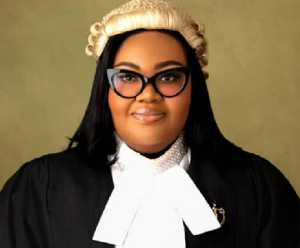


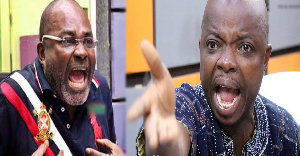


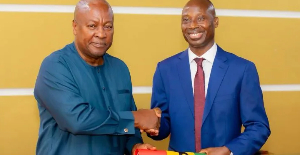




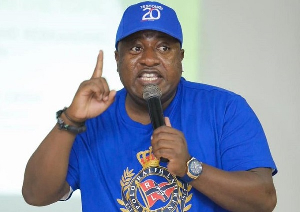

![Dr Ayine [L] and Nana Boakye Dr Ayine [L] and Nana Boakye](https://cdn.ghanaweb.com/imagelib/pics/897/89751583.295.jpg)

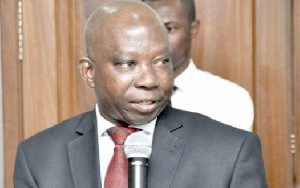

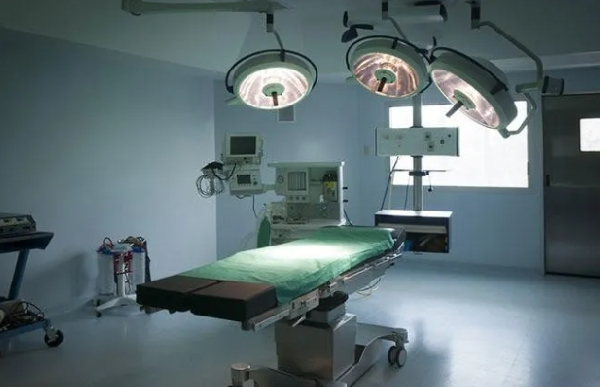


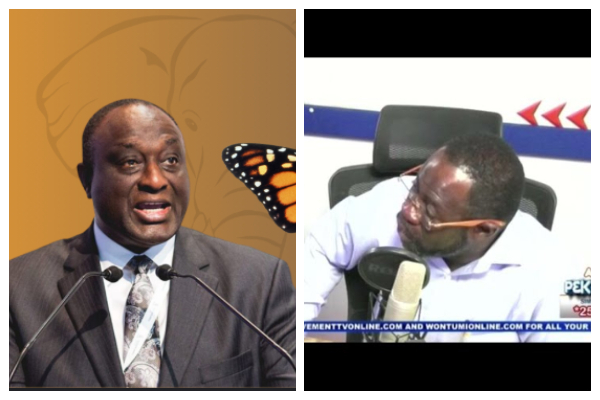
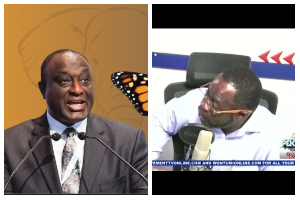
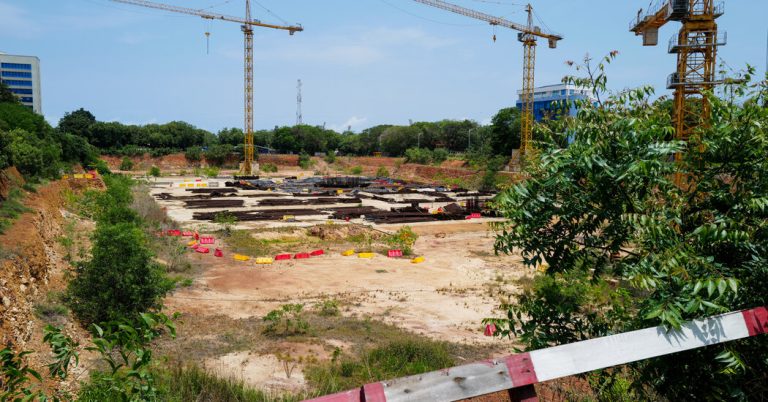

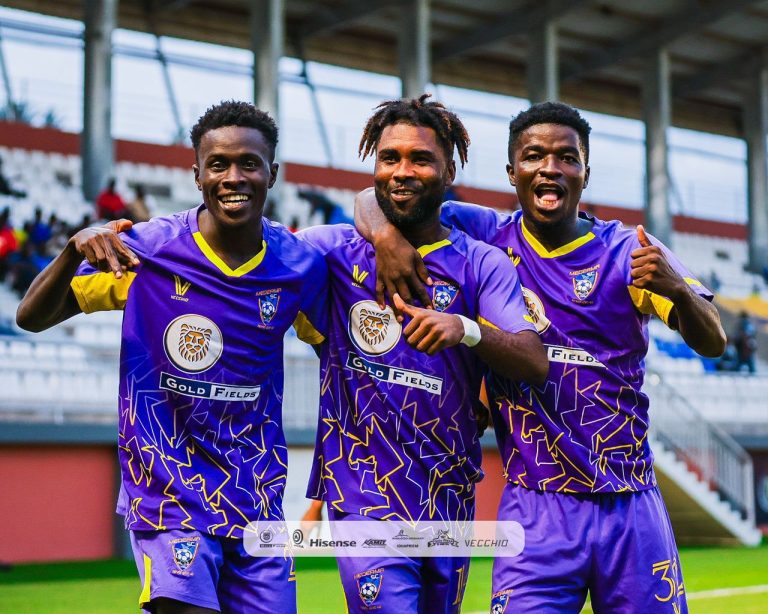

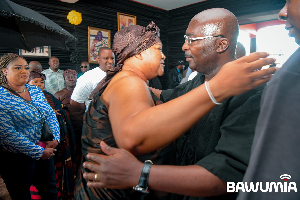

 The game balanced out from that point, with both sides enjoying spells of possession. Ghana’s Opoku missed a glaring chance in the 32nd minute, while DR Congo’s Messy Mubundu Manitu [in jersey number 10] impressed with his creativity. The Satellites’ Andrews Adjabeng also spurned a gilt-edged opportunity as the half wore on. Congo nearly snatched the lead again just before halftime, but Ghana had the better of the chances in this half overall, including a header over the bar in the 38th minute and another just before the break from Musibau.
The game balanced out from that point, with both sides enjoying spells of possession. Ghana’s Opoku missed a glaring chance in the 32nd minute, while DR Congo’s Messy Mubundu Manitu [in jersey number 10] impressed with his creativity. The Satellites’ Andrews Adjabeng also spurned a gilt-edged opportunity as the half wore on. Congo nearly snatched the lead again just before halftime, but Ghana had the better of the chances in this half overall, including a header over the bar in the 38th minute and another just before the break from Musibau.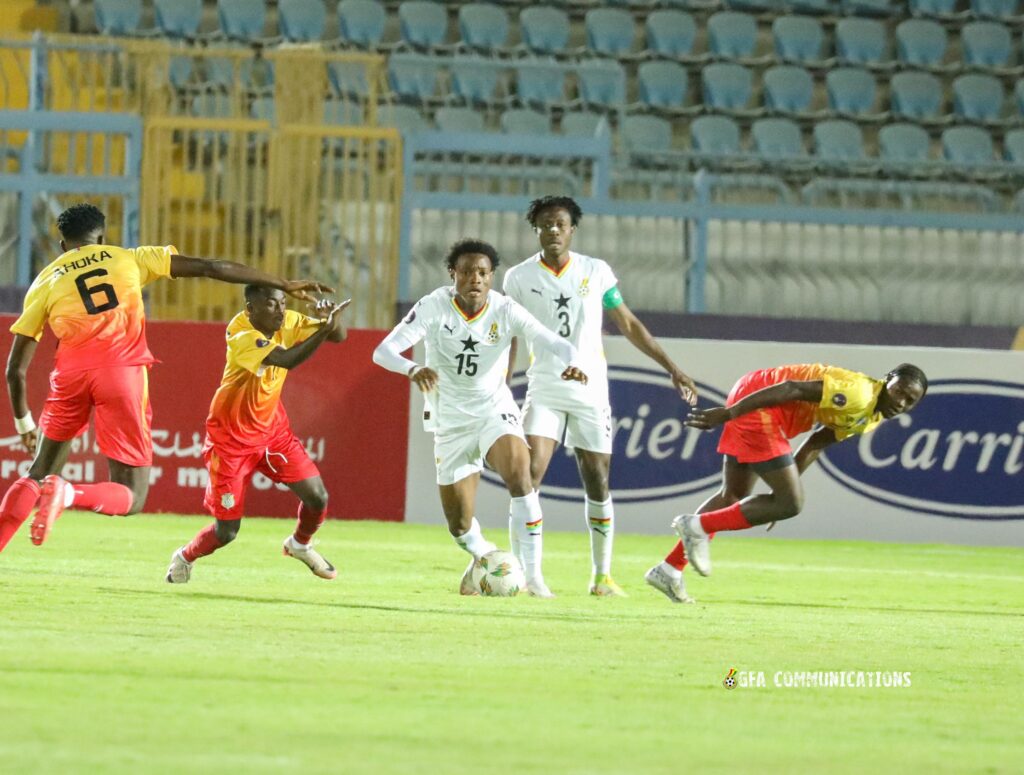
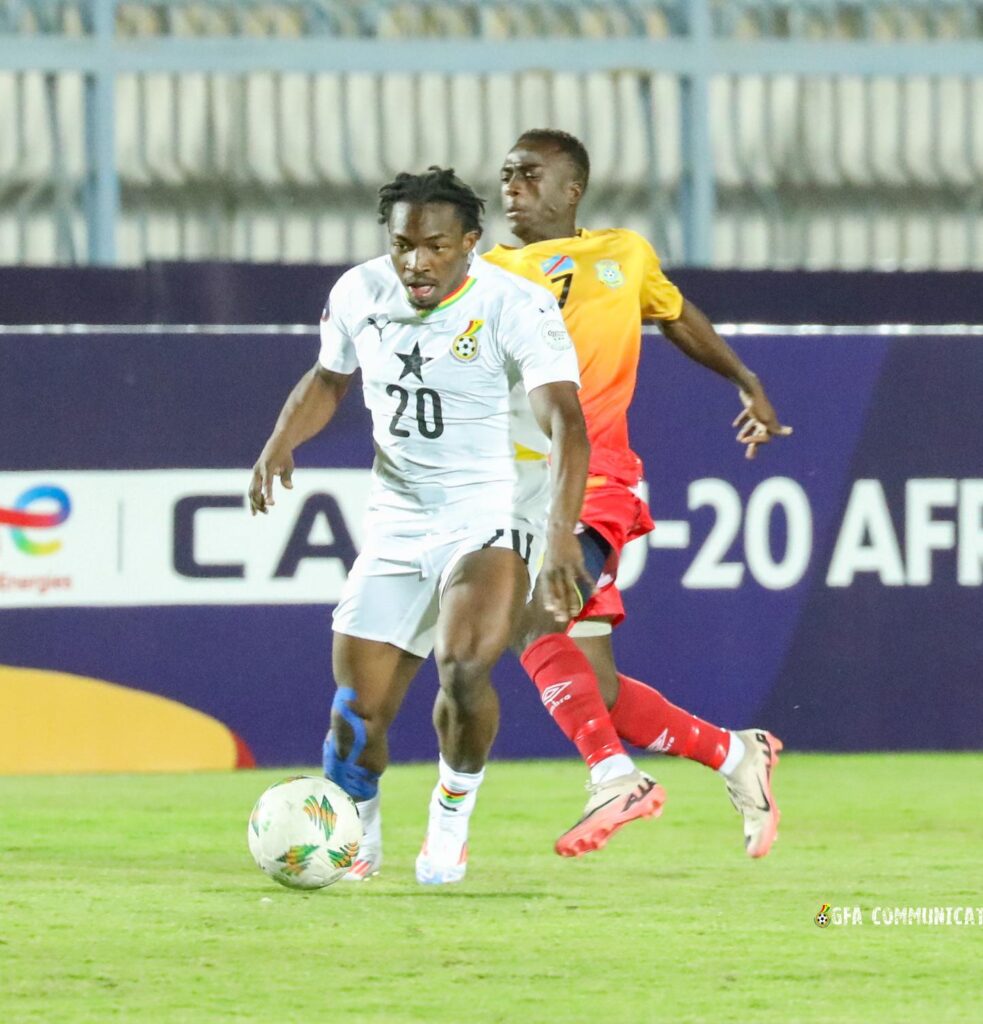


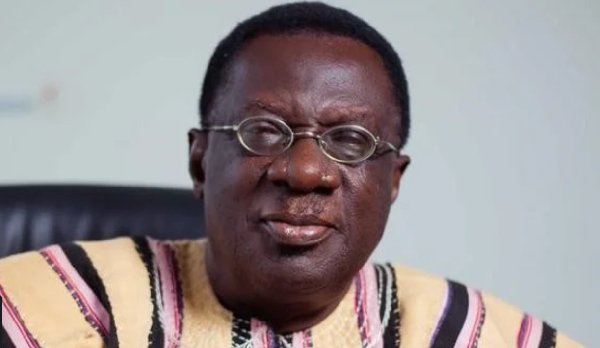







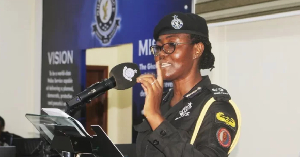






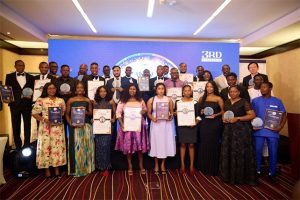
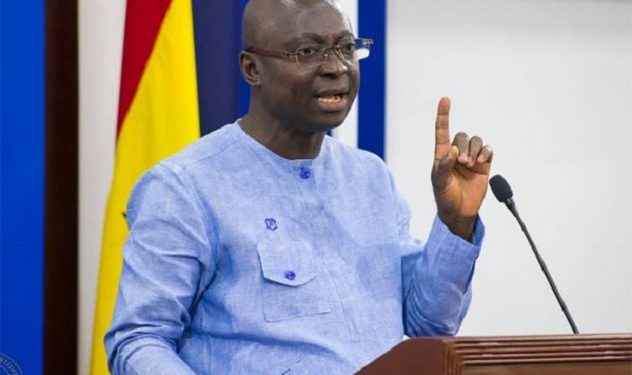


 The President of the Republic, John Dramani Mahama, is expected to grace the event and deliver an address as the special guest of honour.
The President of the Republic, John Dramani Mahama, is expected to grace the event and deliver an address as the special guest of honour.



